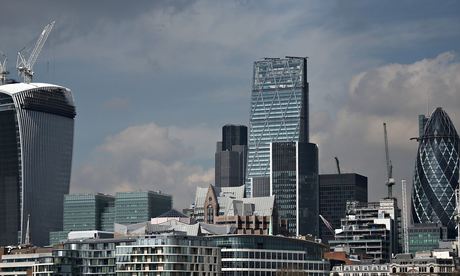Submitted by WA Contents
Boris Johnson must build a proper case for transforming London’s skyline
United Kingdom Architecture News - Apr 13, 2014 - 12:14 2236 views
In an open letter to the mayor of London our architecture critic urges a thorough debate on whether skyscrapers are the answer

The future of London's skyline must be thoroughly debated, urges Rowan Moore. Photograph: Dan Kitwood/Getty Images
Dear Boris
Let's agree that towers can be beautiful. Let's also agree that London needs new homes and plenty of them. It may well be that many of the 200-plus tall buildings now proposed can play a useful role if, as you say, they are "sensitively managed, well designed and in the right place".
London is not Amsterdam nor Vienna, cities whose inherited profile is retained at all costs. But neither, as you once put it, should it be Dubai-on-Thames. Can you look at Strata SE1, the proposed One Nine Elms, or the polychrome blisters of Stratford, and say that they earn their place on the London stage? Or that the chaos of pricks at Vauxhall will be a well-formed piece of city of which we can be proud? Or that the proposed clusters at Vauxhall and Waterloo do not affect the settings of the Houses of Parliament and other historic places? Unesco thinks they do. Have you seen the effect of the Walkie-Talkie on views of the Tower and Tower Bridge from south of the river?
Do you honestly think that a studio flat in the One Blackfriarsdevelopment, with a starting price of £1,015,000, is the best answer to London's housing needs? Between the 20th floor and the top of the proposed 49-storey Ludgate House, also in Blackfriars, 65 flats will be created. Does this small dent in your annual target of 49,000 justify the extra floors, which will dominate the river bank for centuries?
As you say, some affordable housing is paid for by building towers, through the mechanism of planning gain. But it is not the only way to get this gain: developments that are lower and/or better designed could also deliver it. Is there any evidence that towers are the best way to achieve it?
Before embarking on this radical transformation of the city, did anyone do the maths? When I ask your spokesman if you have any evidence on the numbers being created by tall buildings, I get the answer: "We don't."
I am in general concerned about your command of data. You trumpet that "in a recent survey, the Gherkin was Londoners' favourite building, followed by the Shard and then the Cheesegrater". That would be the Ipsos Mori poll in which people were asked to choose the best from a list of 13 towers. That the first three were all tall is therefore no more revelatory than that the Grand National was won by a horse.
You also say that the new skyscrapers are the result of policies that have been publicly aired. But no Londoners, not even the mayor, have been shown the cumulative effects of these policies. The images that theObserver published on 30 March are more extensive than any seen before, but even they only show parts of the city. Many who saw them were amazed – they had no idea that anything like this is happening. Policy has been made blind and much of the consultation has been in name only.
At times, you sound like a minister of the Harold Wilson era, preaching megastructures in the name of Progress and the People. The People, as tested by other questions in that Ipsos Mori survey, were split on the question whether more tall buildings should be built. But clear majorities said they wouldn't want to live in them and thought that siting and design were important. Before we further inflict the White Heat of Phallocracy, should we not be certain that we are meeting these wishes?
If London is, as you like to say, the Greatest City in the World, it also deserves the greatest planning, not default solutions downloaded from other places. Do you want to be remembered as the Man Who Wrecked the Thames or as the mayor who showed the world how to combine density with beauty?
> via The Guardian
